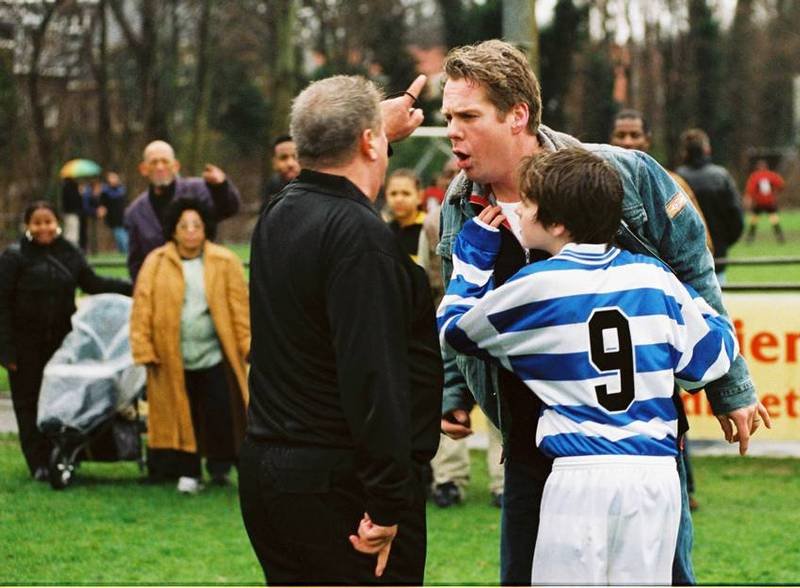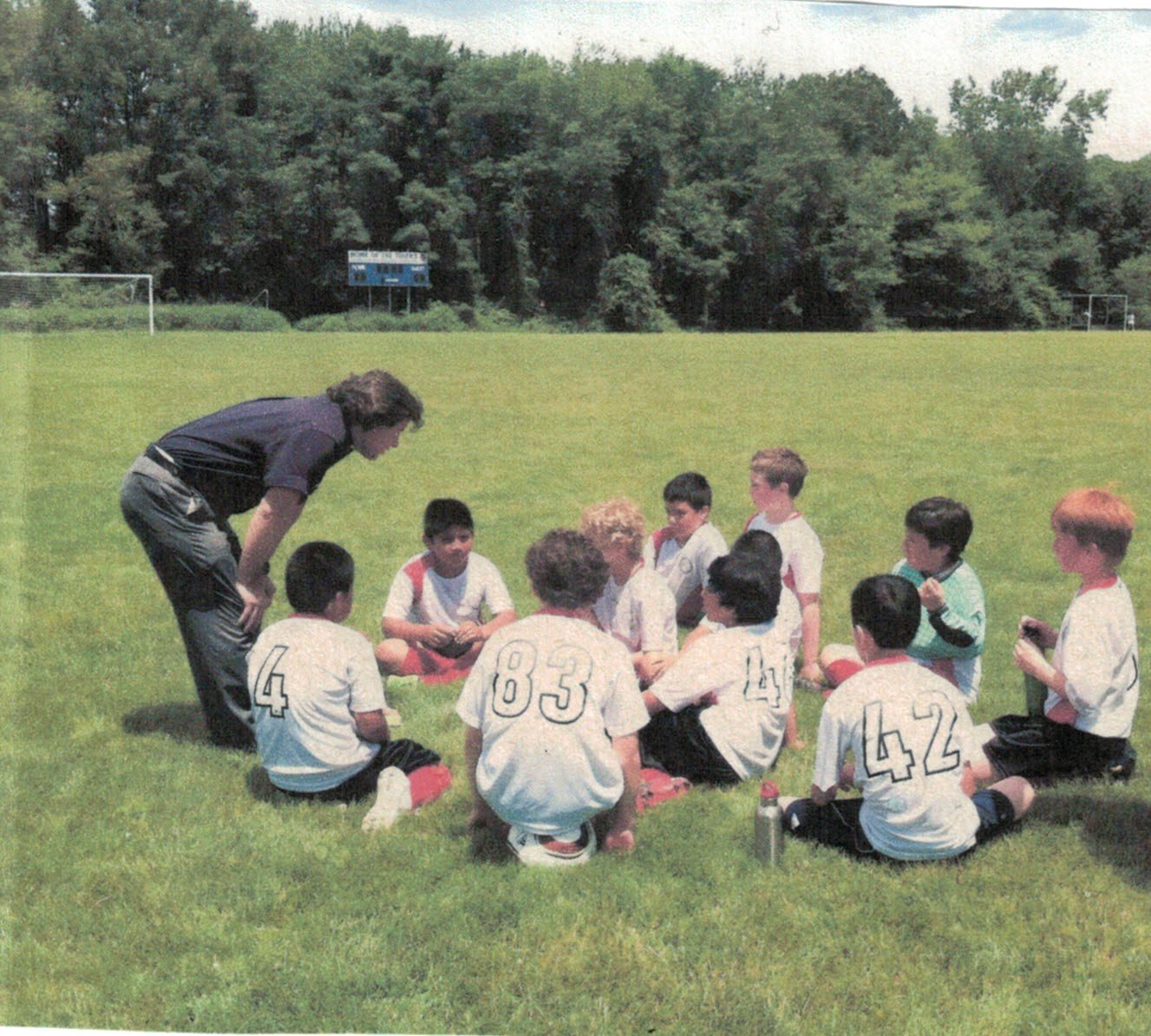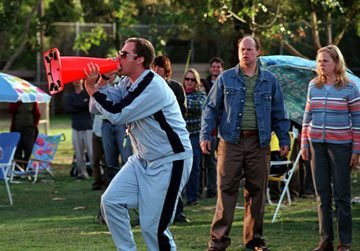Coaches Corner #1:
Hey, Coach! Whatcha Doing?!
Courtesy of NJ Travel Soccer Blog
The first year I coached boys’ soccer in Tarrytown, my boys went undefeated, and we had a great time. The parents were very positive that I would contribute my time without having a child on the team. But I had to stop coaching after my second season because my business grew so fast that my weekends became absorbed by work. A few years later, I volunteered again as an assistant coach and was reunited me with many of the of the same boys, and we rekindled the bond. This was a much more competitive league. We were playing tougher teams from Manhattan, and we didn’t make the playoffs. But the boys worked hard; I made sure we had fun at practices, and I saw a lot of improvement in the boys from the beginning of the season to the end.
Throughout my coaching time, I was lucky to have very supportive and cooperative parents. Other coaches told me about helicopter parents that were not only very vocal, but often confused the kids by yelling commands that contradicted what the coach was telling them.
From the parent side, especially if you played the sport your child is playing at a competitive level, I can understand your frustration as well as how hard it is to not say anything when every fiber in your being, from years of training and playing is telling you that what the coach is doing is… wrong.
So, let’s dig into the “wrong” part of it. I’m going to ask you to put on your mindfulness hat and be very self-aware here as I ask you three very important questions about interfering when you believe the coach is wrong. Are you ready? Good.
#1: Are the coach’s instructions physically dangerous to your or another child?
#2: Are the coach’s instructions emotionally harmful to your or another child?
#3 Are the coach’s instruction going to cause your child’s team to lose the game?
Me coaching my boys
If #1 is true, and it is not your perception, but you know based on your experience as an athlete, coach, medical professional, or the instruction is so blatantly violent that an intervention is required. This is the only time I would say it’s okay to contradict the coach at the time of the instruction. But this is the nuclear option, if you’re wrong, if you misspeak in the heat of the moment, or if you do not have a complete understanding of the game, the command of the sport slang, (e.g., hit, strike, tackle, pound) which might have different meanings in sport than the literal meaning, you will lose all credibility. You will lose credibility not only with the coach, but with the other parents, and possibly with your child. In cases like these, it will be YOUR protective instincts that embarrass the heck out of your child, causing an emotional trauma. So, before you push that red button, be sure you are interpreting the coach’s command correctly as physically dangerous.
Courtesy of thecoachdiary.com
If #1 is false, let’s look at #2, is the coach over critical, yelling or berating your child or using belittling words like “loser,” “toughen up,” “wuss,” “baby,” “you suck,” or other triggering words that create emotional harm? Then you have a right to speak up and defend your child. There is no reason for language like that, no matter what, even at the collegiate level.
I was a freshman walk-on at The College of New Jersey’s wresting team. They were the defending DIII NCAA Champions, and I was at the bottom of the depth chart. I only made the 2nd team because we didn’t have anyone else at my weight class (126 lbs.). I was not very good in high school as I battled the scales more than my opponents. But that is another story. The coaches at TCNJ tried to help me; they were patient, and tolerant of my skill level. I didn’t win a single match that year, but they appreciated my work ethic, and I came to camp in the best shape of anyone on the team. I’m sure my skill level frustrated them, but the coaches never ridiculed me.
If your child’s coach is using unhealthy language, then pull the coach aside at a scheduled break (a quarter or half-time, not a timeout, or water break) and inform the coach, in a low conversational tone, that you don’t approve of the language and messages he is sending to your child or other children. If he/she ignores your request, and you feel it’s emotionally unsafe for your child, ask for a meeting with the head of the league and the coach and let them explain themselves. If still not satisfied, again this is a nuclear option, but you can pull your child from the team, or ask for your child to be on another team where you are in alignment with the coach’s communication style.
Now, if your child makes a mistake on the field, especially a mental mistake, he or she should expect some constructive criticism and possibly be taken out of the game. That is the coach’s prerogative. And although it can be embarrassing for the child, this is not abuse. We all make mistakes, and as part of a team, if your child is having an off day, then maybe he or she should have some bench time and learn how to be supportive of their teammates from the sidelines. Nothing wrong with this.
I had one, and only one, incident where a child grew so frustrated when another teammate’s mistake when a poor pass led to an easy goal, that he got so mad he flung his arms at the boy. He was not anywhere near hitting him, but I pulled the boy out of the game. I told him to sit down and get some water and cool down. After giving him a few moments to gather himself, I talked to him. I told him what he did was not okay. That he cannot get so mad at another teammate that he wants to hurt them. I reminded him it’s just a game, and even if our undefeated season was on the line, that was no reason to get that angry. He was a good boy, an excellent player. He just had a moment where his competitiveness got the best of him. Today he’s playing pro soccer in Europe. Don’t get me wrong, I love the competitive fire, but not at the expense of another teammate’s or opponent’s safety.
Sports are full of emotion, and it is a great laboratory for children to discover and express their emotions, even the discursive ones. As a coach, I created a safe place for my boys to express their emotions. I had two rules on my team: #1 I expected 100% effort in everything we did. #2 No one, not even me, could yell at someone. I believe that a safe environment was key to the boys’ bond and having the undefeated season; they didn’t play scared; they weren’t afraid that when they made a mistake, they were going to be humiliated our taunted by me or other teammates. But most of all, I made sure they were having fun. Why? Because I wanted to have fun! If I was giving up on my weekends, I’m going to enjoy it. It was also a way for me to process some of the trauma I experienced as a soccer player in high school. I was yelled at, criticized, and made fun of, and I didn’t want that for any of the boys. Again, it’s just a game.
Okay, #3, if the coach is not putting your child in physical or emotional danger, and you know that the instructions, plays, or the formations that the coach is using is completely bone-headed, well, unfortunately, and this is where that mindfulness practice comes in. Find your Zen place and say nothing but words of encouragement to your team. No coach likes to be questioned by the parent in public. You might be right, but it’s the coach’s decision, and you never know, the play just might work. But let’s just say, for argument’s sake, it was a coaching decision that cost the game. I doubt there were any pro scouts there for your youth soccer game. And I cannot remember any loss that was so devastating in all my years of athletics that I am still plagued by it. Oh, there were some judo matches I wish I could get a do-over on. Ones where I made a poor attempt at a throw and got countered and lost to a guy I should have beaten. After the tournament, I would replay the match in my head over and over on my drive to work. So, I watched the film, worked on my mistakes in the dojo, and there was always another tournament in a few weeks to correct my mistakes. I got over my losses, and I guarantee so will your child.
It’s hard when we see a coach who doesn’t know the game as well as we do, or even played competitively at any level. And it can infuriate us if they are learning the game on YouTube. So, what can you do? First, volunteer! Be the change you want to see. Sometimes Dad’s and Mom’s get roped into coaching because no one else wants to do it. It’s a thankless job, they have to give up all their weekends for practices and games, and travel, and deal with 20 parents who sometimes forget that the coaches have a job, a family, a life outside coaching your kid. So, be patient, be kind, be compassionate to volunteers.
If you have knowledge to share, or you can help with practices, that is huge for a coach, and it provides a low-tension environment for you to share your knowledge of the game. Now helping doesn’t mean taking over unless they ask you to take over. You can offer advice, but it is up to the coach if they want to receive and use it. Don’t be a seagull parent, either. A seagull parent is that parent who flies in, makes a lot of noise, craps all over everything, then flies away.
Courtesy of Time Magazine
But this is where you can be a big help, go to practices, help with drills, or help teach the coach about the game and the fundamentals. He or she will really appreciate you and I’m sure, unless their ego is out of control, they are feeling uncomfortable on the sidelines. How many times have you been required to talk about topics where you are not the subject matter expert? It’s uncomfortable. So have some compassion, help them out, give them encouragement, and email them some diagrams or have a call to help them out. And instead of being “that parent” who is all in their ego and is embarrassing themselves and the coach, you can show your child athlete what being a team player truly is, even when you are 100 feet away from the field.




